That sadness, that heavy feeling? It ain’t just a bad mood, friend. It’s like a coat made of lead, weighing you down.
One in five of us gets hit with this stuff each year.
It’s not just feeling blue, it’s like a hole where your good times used to be.
Like something’s missing, and you can’t find it no matter how hard you look. The joy’s gone, and there’s just this ache.
You don’t want to do anything, you can’t connect, and you wonder what’s the point of anything.
| Feature | Description |
|---|---|
| Duration | Sticks around. Weeks, months, years, not just a day. |
| Intensity | Deep, heavy, not just a little down, like a punch to the gut. |
| Impact | Messes with everything: work, friends, the whole damn deal. |
| Triggers | Sometimes it just shows up, no good reason. |
| Emotional State | Feeling numb, like you’re watching a movie and not a part of it. |
Sleep goes haywire? You can’t sleep, or you can’t get out of bed? That’s not right. It’s a red flag.
Your head’s racing all night, or you sleep all the time, trying to escape.
This messes up everything, your mood, your head, everything. It makes the bad stuff worse. About 70% of us get this sleep thing now and then.
- Can’t fall asleep even when you’re beat.
- Waking up all night and can’t get back to sleep.
- Up way too early, no sleeping in.
- Wake up tired.
- Sleeping like a log, way too much.
- Can’t wake up in the morning.
Food? You either ain’t hungry or you can’t stop eating, a bit of a mess. It ain’t always a choice. It’s your body reacting.
It’s what’s in your head showing up as weight gain or weight loss.
This is a mental thing, not just a physical one, almost 10% of us have some kind of eating mess.
- Don’t want to eat.
- Eating too much even when you ain’t hungry.
- Full right away, even when you ain’t eaten much.
- Eating because you’re down or stressed.
- Losing weight for no good reason.
Then, you’re just tired. Like all the time tired. No matter how much you sleep, it doesn’t work. Like walking uphill all the time. You don’t care about anything, that’s a bad sign. This can lead to you being alone and feeling worse. It also cranks up the risk of the bad feelings.
You’re snappy and on edge, like a lit fuse. Can’t relax.
You lose your cool easy, that’s bad for the people you know.
When your temper gets short, it means something’s out of whack in your head.
Can’t think straight? Like your head’s full of fog? Can’t make choices? It’s like your brain’s gone dull. You start doubting yourself.
This mess gets in the way of everything, work, friends. It’s like trying to look through a dirty window.
You don’t want to see anyone? You’re just not feeling like hanging out.
You slowly start to pull away from the people you like and you have no joy in your hobbies.
It’s not a good sign when you start to ghost people. One in four of us get lonely like that.
You start getting aches and pains? No doctor can figure out what’s wrong? That’s your body talking.
Mind and body are connected, and sometimes the bad in your head shows up in your body. You can get stomach problems, all kinds of issues.
It’s your body telling you that you need to pay attention.
Then you start leaning on the bottle or something else, like it’s a quick fix.
It’s not a fix, it’s a way to numb the bad feelings, and it’ll lead to a cycle of bad habits. One in ten get stuck on that kind of thing.
Finally, the big one: feeling like there’s no hope, thinking about ending it all. That’s like a dark room you can’t get out of. That’s not weak, that’s a cry for help.
It’s your head telling you that you need to ask for help.
If any of this sounds like you, get help. Talk to someone. It takes guts to ask for help, not weakness.
Look out for these signs, they can lead you back to yourself. It’s alright to get help.
Persistent Feelings of Sadness or Emptiness
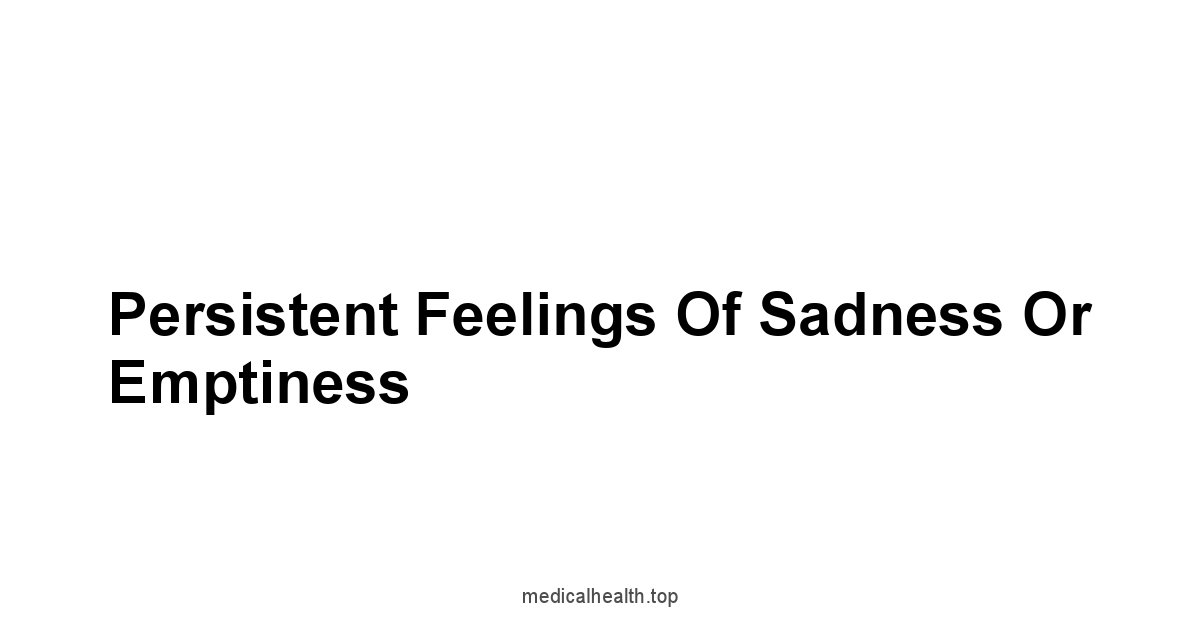
Sadness, it visits us all.
Like a storm cloud passing overhead, it darkens the day but moves on.
But what happens when that cloud stays? When the grey becomes the only color you see? That’s when we need to pay attention.
Persistent sadness isn’t a fleeting feeling, it’s a heavy cloak you can’t shake off.
It seeps into everything, coloring your perceptions and dimming your light.
It’s a constant weight, a dull ache in the soul that whispers of something deeper.
Emptiness, too, can be a signal.
It’s not just the absence of happiness, it’s the void where joy, passion, and meaning once resided.
It’s like a hollow echo chamber where nothing resonates.
This isn’t about being a little down in the dumps, we’re talking about a void, a black hole where feelings should be.
It’s a pervasive sense that something is missing, and no matter what you try, you can’t seem to fill it.
The Unwavering Cloud: Understanding Chronic Sadness
Chronic sadness is more than just a bad mood, it’s a relentless state of being.
It’s like carrying a lead weight in your chest, making even the simplest tasks feel monumental.
This sadness doesn’t come and go, it lingers, shaping your day-to-day experiences.
It’s a heavy blanket that smothers any flicker of joy.
Here are some characteristics of chronic sadness:
- Duration: It lasts for weeks, months, or even years, not just a few days.
- Intensity: It’s a deep, pervasive sadness, not a minor, temporary dip in mood.
- Impact: It interferes with your daily life, affecting your work, relationships, and self-care.
- Lack of Triggers: It can occur without any apparent reason or event.
- Emotional Numbness: Sometimes, the sadness can morph into a feeling of emotional flatness where you feel disconnected from everything.
| Duration | Persistent for weeks, months, or years, unlike temporary sadness. |
| Intensity | Deep, pervasive, and overwhelming, unlike a minor dip in mood. |
| Impact | Significantly interferes with daily life, affecting work, relationships, etc. |
| Triggers | Can occur without any apparent reason or event. |
| Emotional State | Often accompanied by emotional numbness or detachment. |
When Emptiness Becomes a Constant Companion
Emptiness isn’t the same as sadness, though they often walk hand in hand.
It’s a peculiar feeling, like being adrift at sea without a compass.
It’s a lack of internal substance, as if a part of you is missing.
Life loses its flavor, and what once brought you joy now leaves you feeling flat.
The world is happening around you, but you’re just watching, not participating.
Emptiness manifests differently for everyone but here are common ways that you might experience it:
- Lack of Motivation: You might find it difficult to start or complete tasks, as if you lack the inner drive.
- Disconnection: You feel detached from yourself and others, like you’re watching a movie of your own life.
- Loss of Pleasure: Things that used to excite you now hold no appeal.
- Existential Questions: You might find yourself questioning the purpose of your life and your place in the world, without finding answers.
- Difficulty Forming Attachments: Forming meaningful relationships seems hard or pointless.
Differentiating Normal Sadness from a Deeper Issue
It’s important to know the difference between the sadness that everyone feels sometimes, and the sadness that might require attention.
Normal sadness is often triggered by a specific event—a loss, a disappointment, a rough patch.
It’s a natural response to life’s challenges, and it usually passes with time.
Deeper issues, however, are relentless, pervasive, and impact various areas of your life.
Ask yourself these questions to understand if you are experiencing normal sadness or a deeper issue:
- Triggers: Did the sadness start after a specific event, or did it appear without reason?
- Duration: How long have you felt this way? Is it a few days or longer?
- Intensity: How strong is the sadness? Is it mild or overwhelming?
- Impact: Is the sadness affecting your sleep, appetite, energy, work, or relationships?
- Control: Can you pull yourself out of it, or does it feel like it’s controlling you?
If the sadness is persistent, intense, impacts your daily life, and you feel like you have no control, it may be time to seek help.
Significant Changes in Sleep Patterns
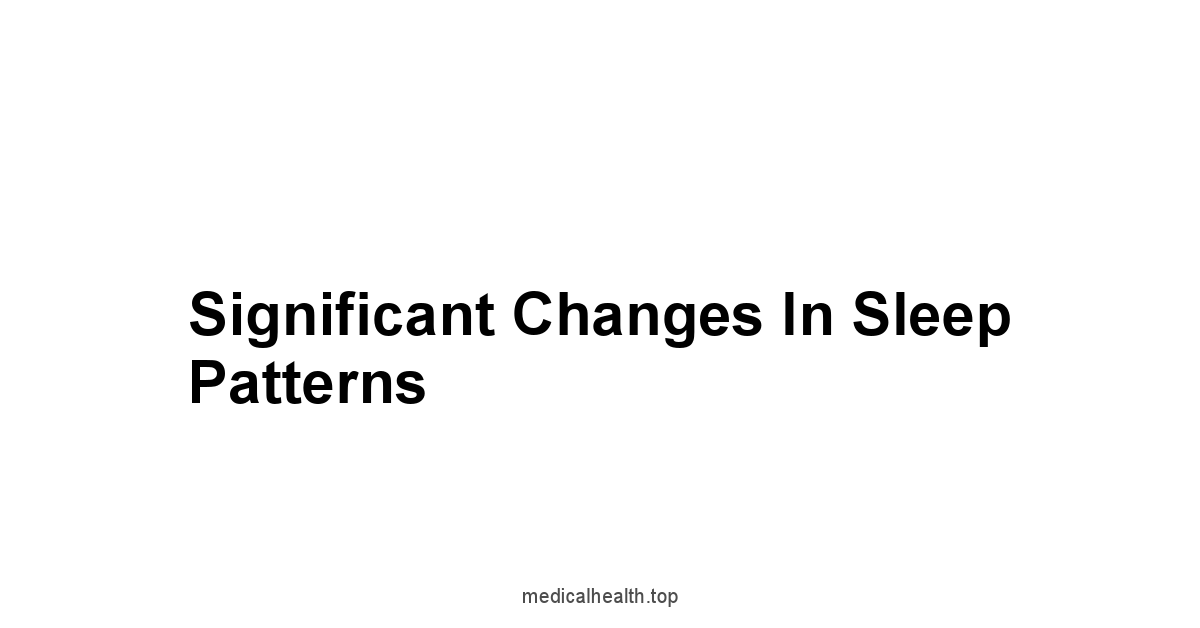
Sleep, it’s a fundamental need.
Like breathing and eating, it’s essential for survival.
But sleep isn’t just about resting your body, it’s also about recharging your mind.
When your sleep patterns change, it’s a red flag, a signal that something isn’t right.
These shifts can be disruptive, affecting your mood, energy, and ability to function.
When sleep becomes a battlefield, it’s time to pay attention.
Changes in sleep can manifest in different ways.
Some might find themselves unable to fall asleep or stay asleep, tossing and turning through the night.
Others might start oversleeping, using sleep as an escape from the challenges of daily life.
Both extremes are signals that your mental well-being may be at risk and need attention.
Insomnia’s Grip: When Sleep Becomes a Battle
Insomnia isn’t just about having a bad night’s sleep now and then.
It’s a persistent struggle to fall asleep, stay asleep, or both.
When your mind races at night, thoughts keep you awake, and sleep is elusive.
You might feel exhausted during the day, but the second your head hits the pillow, your brain kicks into high gear. It is a battle against your own biology.
Here are signs you might be dealing with insomnia:
- Difficulty falling asleep despite feeling tired.
- Waking up frequently during the night and struggling to fall back asleep.
- Waking up too early in the morning, unable to go back to sleep.
- Feeling tired and unrefreshed upon waking.
- Experiencing daytime fatigue, irritability, and difficulty concentrating.
- Obsessively worrying about not being able to sleep.
| Symptom | Description |
|---|---|
| Onset Insomnia | Difficulty falling asleep at the beginning of the night. |
| Maintenance Insomnia | Waking up frequently during the night and struggling to fall back asleep. |
| Early Awakening | Waking up too early in the morning and unable to return to sleep. |
| Daytime Fatigue | Feeling tired and unrefreshed upon waking and experiencing daytime fatigue. |
| Mental Distress | Obsessively worrying about not being able to sleep. |
Oversleeping: When Rest Becomes an Escape
Oversleeping, or hypersomnia, can be just as disruptive as insomnia.
It’s the compulsion to sleep for extended periods, often as a way to avoid dealing with emotional pain or the stress of daily life.
It’s not just about enjoying sleep, it’s about seeking refuge in it.
The world fades into the background when you’re asleep.
Here are some indicators you might be oversleeping:
- Sleeping for more than nine to ten hours each day.
- Difficulty waking up in the morning despite having slept long enough.
- Feeling lethargic and unmotivated even after waking up.
- Using sleep as a way to avoid responsibilities or difficult emotions.
- Experiencing difficulty with daytime alertness and focus.
- Feeling the need to take frequent naps throughout the day.
The Link Between Sleep and Mental Wellbeing
The connection between sleep and mental health is undeniable.
A lack of sleep can exacerbate existing mental health issues, and mental health issues can disrupt your sleep. It’s a vicious cycle that’s hard to break.
When your sleep is disturbed, your mental wellbeing suffers. And vice versa.
Here are some ways disrupted sleep affects mental health:
- Mood Swings: Lack of sleep can lead to irritability, anxiety, and depression.
- Impaired Cognitive Function: It affects your ability to think clearly, concentrate, and make decisions.
- Emotional Regulation: It becomes more difficult to manage your emotions when you are sleep-deprived.
- Increased Stress: Poor sleep can increase your vulnerability to stress and make it more difficult to cope.
- Worsening Mental Health Conditions: Lack of sleep can worsen the symptoms of conditions such as anxiety, depression, and bipolar disorder.
| Area Affected | How Disrupted Sleep Impacts It |
|---|---|
| Mood | Increased irritability, anxiety, and depression. |
| Cognition | Difficulty thinking clearly, concentrating, and making decisions. |
| Emotional Regulation | Reduced capacity to manage emotions effectively. |
| Stress Levels | Increased vulnerability to stress and difficulty coping. |
| Mental Health | Worsens symptoms of conditions like anxiety and depression. |
Drastic Shifts in Appetite or Weight

Food, it’s more than just sustenance.
It’s tied to our emotions, our memories, our sense of well-being.
When our relationship with food changes drastically, it’s a signal that something is off balance.
It could be a loss of appetite, where food becomes something you dread.
Or it could be overeating, using food as a comfort or an escape.
These shifts, whether it’s weight loss or gain, are the body’s way of telling you that something deeper is going on.
Our weight is a physical manifestation of what’s happening inside our minds.
When we’re stressed, anxious, or depressed, our eating habits often change.
These changes are not always conscious decisions, they’re often subconscious responses to our emotional state.
A significant shift in appetite or weight should be seen not just as a physical issue, but as a potential sign of mental or emotional distress.
Loss of Appetite: Food No Longer Holds Appeal
A loss of appetite isn’t simply about not feeling hungry.
It’s a profound disinterest in food, a feeling that eating is a chore or that food no longer holds any appeal.
It’s as if the body is saying it doesn’t need to be nourished because nothing feels good or worth maintaining.
You might find yourself skipping meals, eating very small portions, or feeling nauseated at the thought of food.
Here are common symptoms of appetite loss:
- A significant decrease in the desire to eat.
- Feeling full quickly, even after eating very little.
- Skipping meals or eating irregularly.
- Weight loss without intending to lose weight.
- Nausea or discomfort when thinking about or attempting to eat.
- A general lack of enjoyment or interest in food.
Overeating as a Response: Emotional Eating and Weight Gain
Overeating is not just about enjoying food.
It’s using food as a way to cope with difficult emotions.
Emotional eating is like trying to fill a void with calories.
The more you eat, the less you feel, at least for a while.
It can lead to significant weight gain, and it is often followed by feelings of guilt or shame. It’s a cycle that’s hard to break.
Here are some things that indicate emotional eating:
- Eating large amounts of food even when not hungry.
- Eating in response to stress, sadness, boredom, or other emotions.
- Feeling a loss of control over eating habits.
- Eating quickly or mindlessly, often in secret.
- Experiencing feelings of guilt, shame, or regret after eating.
- Gaining weight significantly or quickly without changes to diet and exercise.
The Mind-Body Connection: Weight as an Indicator
Our weight isn’t just about what we eat, it’s a reflection of our overall well-being.
Our mental state can directly impact our physical health, and changes in weight can be a very important indicator that something is wrong.
When you notice significant changes in your appetite and weight, it’s important to consider the emotional factors that may be at play.
Your body is talking to you, it’s important to listen.
Here’s how mental health and weight can correlate:
- Stress and Cortisol: Stress releases cortisol, a hormone that can lead to increased appetite and weight gain, especially around the abdomen.
- Depression and Appetite: Depression can cause either a loss of appetite or increased cravings for comfort foods.
- Anxiety and Eating: Anxiety can lead to irregular eating habits, including both overeating and undereating.
- Body Image Issues: Negative body image and eating disorders can lead to unhealthy weight control practices.
- Overall Health: Both significant weight loss and weight gain can lead to physical health issues, further compounding mental health challenges.
Experiencing Unexplained Fatigue or Low Energy
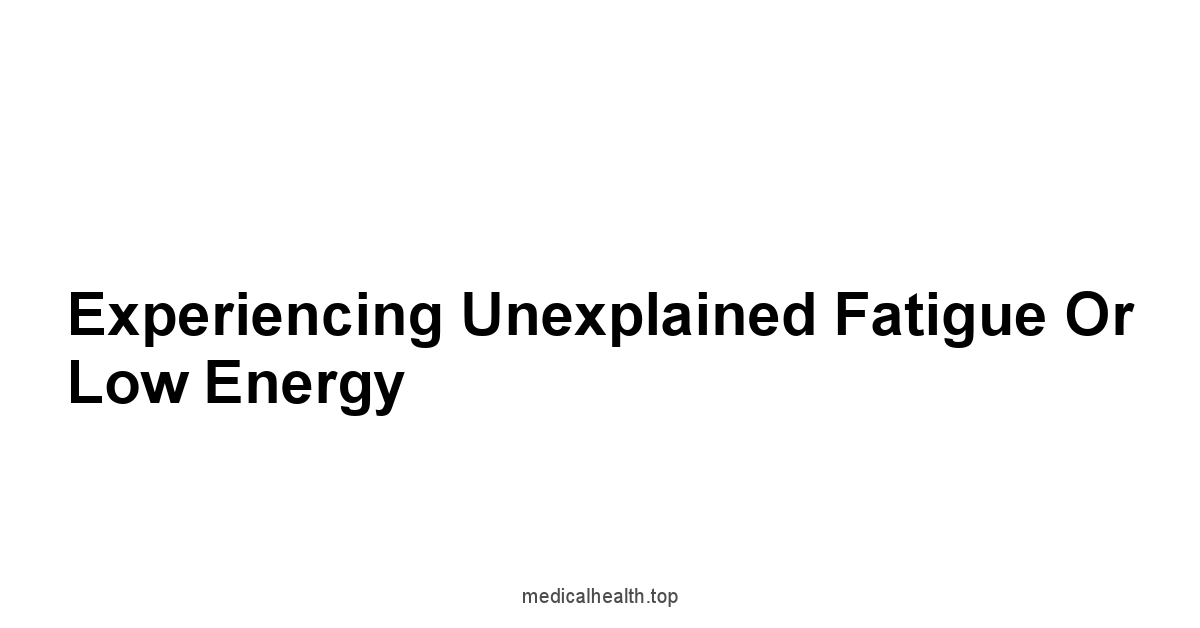
Fatigue, it’s more than just being tired after a long day.
It’s a pervasive weariness that doesn’t go away, no matter how much you rest.
It’s a weight that pulls you down, making even the simplest tasks feel like monumental climbs.
It’s a state of being where your energy is drained, and you struggle to muster the motivation to do anything at all.
It’s not just physical, it’s a deep-seated lack of vitality that can seep into every aspect of your life.
This constant exhaustion can make life feel like an uphill battle.
You might find yourself canceling plans, avoiding social activities, or struggling to keep up with your responsibilities.
This feeling of depletion can make you feel like you are moving through treacle.
It is often a sign that your mental health is taking a hit and that you need to pay attention.
Constant Exhaustion: Beyond the Need for Rest
Constant exhaustion is different from normal tiredness.
It’s an unrelenting state of fatigue that persists despite adequate sleep.
It’s not just about feeling a little weary, it’s about being profoundly drained.
Your body feels like it’s running on empty, no matter how much rest you get.
It’s like your batteries are constantly depleted, and you don’t have the energy to do what you normally would.
Here are some symptoms of constant exhaustion:
- Feeling tired all the time, even after adequate rest.
- Experiencing a lack of physical energy, making it hard to perform daily tasks.
- Difficulty concentrating or focusing on work or other activities.
- Feeling mentally drained and emotionally depleted.
- Irritability and mood swings due to lack of energy.
- Needing to take frequent naps during the day, but still feeling tired.
Lack of Motivation: The Heavy Weight of Apathy
Lack of motivation, or apathy, is more than just feeling lazy.
It’s a profound lack of interest in life and the things that used to excite you.
It’s like a heavy blanket of indifference has settled over you.
Everything feels meaningless, and you struggle to find the energy or purpose to engage with the world around you.

Here are signs of apathy:
- Loss of interest in activities or hobbies you once enjoyed.
- Difficulty starting or completing tasks, even the ones you have to do.
- Feeling a general sense of boredom or indifference.
- Withdrawing from social interactions and relationships.
- Experiencing a lack of emotion or enthusiasm.
- Feeling disconnected from your life and your goals.
The Mental Toll of Physical Depletion
The interplay between physical and mental exhaustion is very important to consider.
When your body is depleted, it takes a toll on your mind, and vice-versa.
Chronic fatigue and apathy often go hand-in-hand with mental health issues.
This is the mind and body telling you that something is wrong, and this communication should be heeded.
Here’s how physical depletion affects your mental health:
- Mood Disorders: Chronic fatigue can increase the risk of developing depression and anxiety.
- Cognitive Impairment: It can affect your ability to think clearly, remember things, and make decisions.
- Emotional Dysregulation: It becomes more difficult to manage your emotions and respond to stress effectively.
- Reduced Quality of Life: Fatigue and apathy can lead to social isolation and reduced overall well-being.
- Vicious Cycle: Mental and physical depletion can feed into each other, creating a cycle of worsening symptoms.
Increased Irritability or Agitation
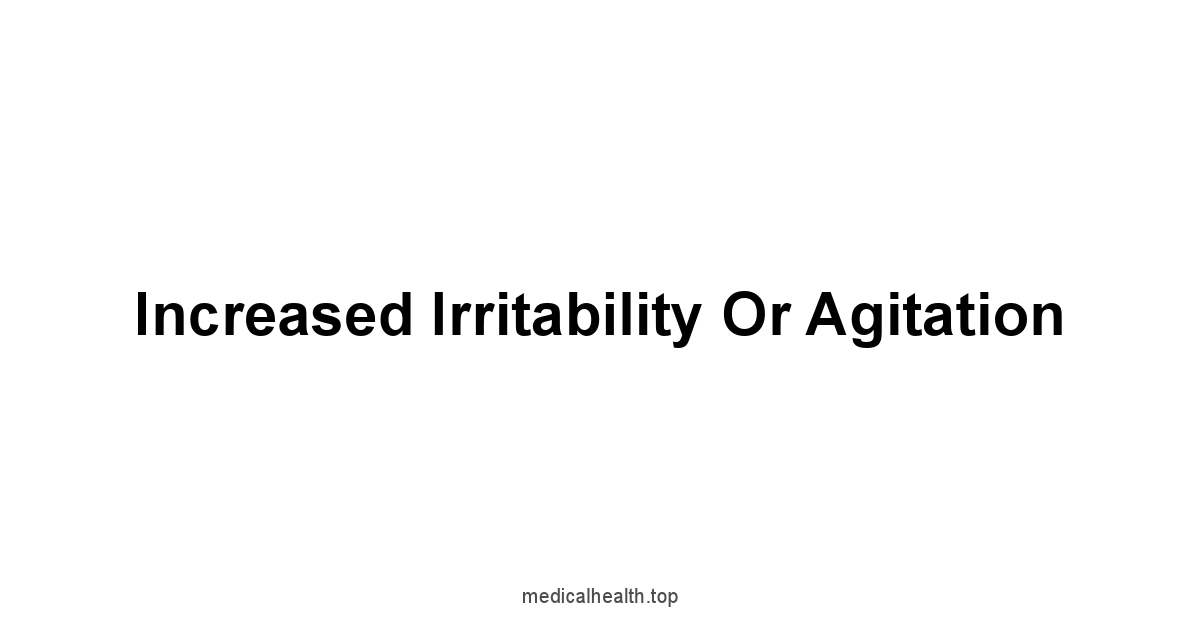
Irritability, it’s a spark, a quick fuse that ignites easily. It’s more than just being in a bad mood.
It’s that feeling of being on edge, like a stretched rubber band ready to snap at any moment.
When minor things set you off, and your temper flares quickly, it’s a signal that something is out of sync.
It’s a constant state of agitation, where your patience wears thin.
Agitation, too, is a sign.
It’s a feeling of restlessness, an inability to sit still.
It’s a tension in the body, a need to move or lash out.
These feelings can be overwhelming, making it difficult to interact with others and manage daily life.
When these feelings become frequent, they are a sign that you might need to look deeper at your mental health.
Short Temper and Quick to Anger: Recognizing Irritability
A short temper isn’t just about having a bad day, it’s about reacting disproportionately to small frustrations.
It’s that feeling of being easily annoyed or angered.
When your patience is low, and you find yourself lashing out at others, it’s a sign that your emotional control is compromised.
These bursts of anger can be jarring and come on quite quickly, leaving you or others around you reeling from the impact.
Here are some common signs of irritability:
- Reacting with anger or annoyance to minor inconveniences or frustrations.
- Feeling easily frustrated or impatient with others.
- Losing your temper over small things.
- Snapping at loved ones or colleagues.
- Having difficulty controlling your reactions.
- Feeling constantly on edge or easily provoked.
Restlessness and Agitation: The Body’s Cry for Help
Restlessness isn’t just about being fidgety, it’s an inner agitation, an inability to relax.
It’s like having ants in your pants, a need to move or do something.
When your body is constantly in motion, it could be a sign that your mind is struggling.
You might find it hard to sit still, concentrate, or calm down.
It is like the energy has no proper channel to flow.
Here are some signs of restlessness and agitation:
- Feeling unable to relax or calm down.
- Fidgeting, pacing, or constantly moving.
- Difficulty sitting still or concentrating.
- Feeling a sense of inner tension or unease.
- Being easily startled or jumpy.
- Having a hard time sleeping or relaxing.
The Impact of Irritability on Relationships
Irritability and agitation can have a significant impact on your relationships.
When you’re easily angered or restless, you create conflict and push people away.
You might find yourself arguing more, withdrawing from loved ones, or straining your relationships. It’s like a poison seeping into every interaction.
It makes it difficult to connect with others, and it damages trust and intimacy.
Here’s how irritability affects relationships:
- Increased Conflict: Short tempers often lead to arguments and misunderstandings with others.
- Emotional Withdrawal: People might withdraw from you to avoid your anger, leading to isolation.
- Damaged Trust: Frequent irritability can erode trust in relationships.
- Lack of Intimacy: Emotional distance makes it harder to connect with loved ones.
- Difficult Communication: It’s harder to communicate when you are on edge and reactive.
- Strain on Family: The whole family dynamic can be disrupted by frequent irritation and anger.
Difficulty Concentrating or Making Decisions
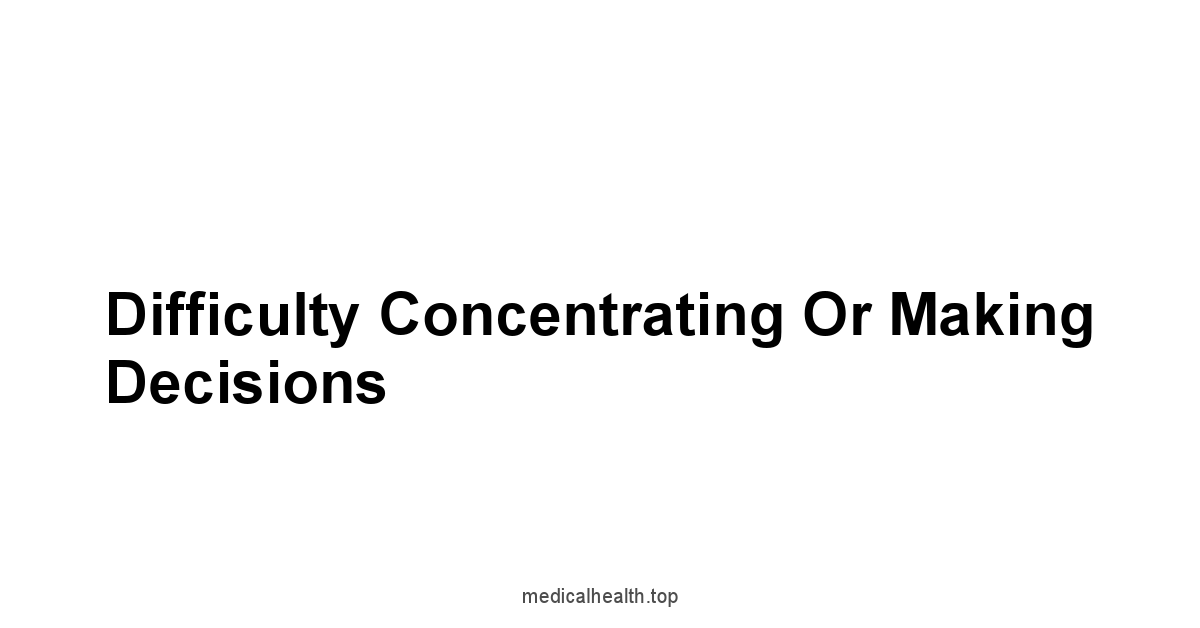
Concentration, it’s the ability to focus your mind, to stay present, and to process information clearly.
When your ability to concentrate is compromised, it’s like your mind is a radio tuned to static.
It becomes harder to stay on task, to follow conversations, or to absorb new information.
Your focus drifts easily, and you might feel scatterbrained.
It’s a struggle that affects both your work and your personal life.
Making decisions, even simple ones, can become a hurdle.
When your mind is clouded with doubt, indecisiveness becomes the norm.
It is like every decision is a mountain you have to scale.
It is not just the big decisions that become difficult, even the small, everyday choices can be overwhelming, leading to frustration and a sense of being overwhelmed.
Brain Fog: The Struggle to Focus
Brain fog isn’t a medical term, but it perfectly describes that feeling of mental haziness, an inability to think clearly. It’s like trying to see through a fogged-up window.
Your mind feels sluggish, your thoughts are slow, and it’s difficult to concentrate.
It makes it hard to process information or follow a line of reasoning. It is like you’re not fully present in your life.
Here are common experiences of brain fog:
- Difficulty concentrating or focusing on tasks.
- Feeling mentally foggy or hazy.
- Slowed thinking and processing.
- Trouble remembering things or following conversations.
- Frequent forgetfulness or misplacing items.
- Difficulty multitasking or managing multiple tasks.
Indecisiveness: The Weight of Simple Choices
Indecisiveness isn’t just being unsure, it’s a paralysis, an inability to choose.
When every decision feels monumental, it’s a sign that your mind is struggling.
You might find yourself second-guessing every choice, endlessly weighing pros and cons, and ultimately feeling overwhelmed by the process.
It’s like every little decision has become an enormous struggle.
Here are some common indications of indecisiveness:
- Having difficulty making simple decisions.
- Constantly second-guessing choices.
- Feeling anxious or overwhelmed by the decision-making process.
- Procrastinating on making decisions or avoiding them altogether.
- Seeking excessive reassurance from others before making a decision.
- Feeling trapped by the burden of choices.
The Mental Strain of Cognitive Impairment
Difficulty concentrating and making decisions takes a significant toll on your mental health.
When your cognitive abilities are compromised, it affects your self-confidence, your ability to cope with stress, and your overall sense of well-being.
It’s like your mind has lost its sharpness and you feel you are less equipped to deal with the world.
Here’s how cognitive impairments affect mental health:
- Increased Stress: Difficulty concentrating and making decisions can lead to more stress and anxiety.
- Reduced Productivity: It affects your performance at work or school.
- Self-Doubt: This can erode your self-confidence and make you feel inadequate.
- Emotional Distress: Frustration, anxiety, and depression can result from not being able to think clearly or make decisions.
- Social Challenges: Difficulty concentrating can make it hard to engage in conversations or social activities.
- Increased Isolation: The inability to participate fully in activities may cause social isolation.
Withdrawing From Social Activities and Relationships
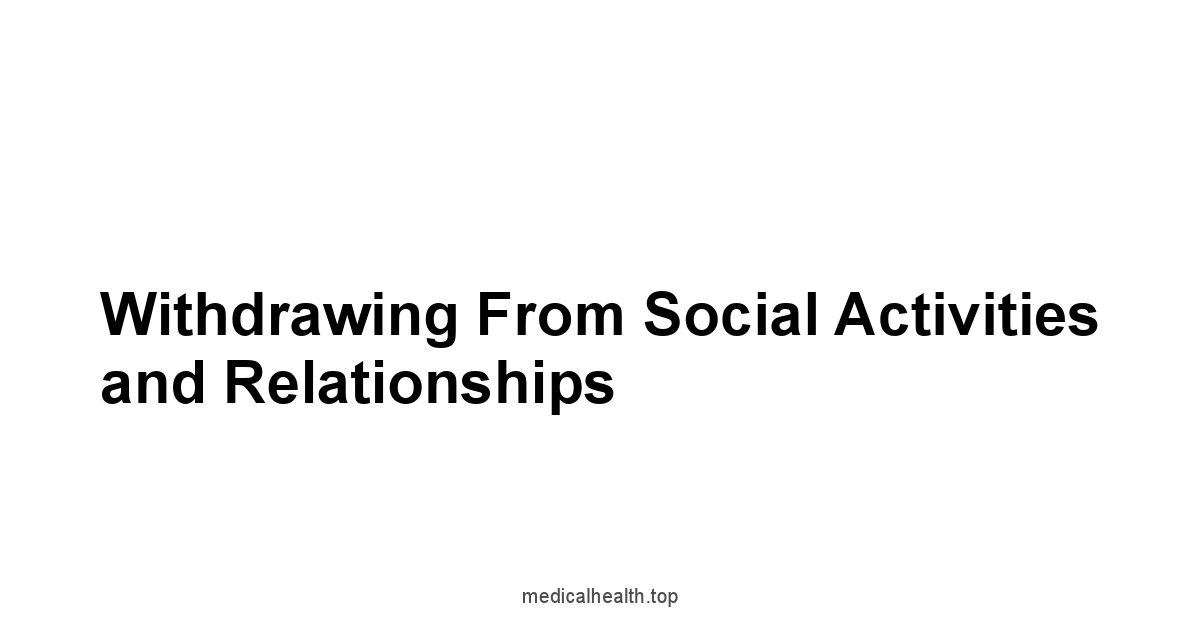
Social connections, they’re essential for our well-being.
Like water for a plant, relationships provide the nourishment we need to thrive.
When you start pulling away from friends and loved ones, it’s a signal that something is amiss.
It’s not just about preferring solitude, it’s about losing the desire to engage with others.
It’s like the world has become too loud, too overwhelming, and you crave the silence of isolation.
This withdrawal can happen slowly or suddenly, but the effects are always the same.
You might start canceling plans, avoiding social gatherings, or losing interest in the things you once enjoyed with others.
It’s a subtle but powerful change, one that can have a significant impact on your mental health and your sense of connection to the world.
Social Isolation: Pulling Away From Loved Ones
Social isolation isn’t just about being alone, it’s about a lack of meaningful connections with others.
It’s a conscious or subconscious decision to withdraw from social interactions, a closing off of your world to those who care about you.
You might start avoiding calls, texts, and social events, preferring the solitude of your own company.
It is like you have built a wall between yourself and everyone else.
Here are signs of social isolation:
- Decreasing contact with friends and family.
- Avoiding social gatherings or events.
- Feeling like you’re disconnected from others.
- Spending more time alone than usual.
- Lack of interest in social interactions.
- Feeling lonely or isolated, even when surrounded by people.
Loss of Interest in Hobbies: When Joy Fades
Hobbies, they’re the spice of life, the activities that bring us joy and fulfillment.
When you lose interest in your hobbies, it’s a sign that your inner world has become muted.
It’s not just about not having time, it’s about not feeling the desire to engage in things you once loved.
This loss of passion can be a powerful indicator that something is affecting your mental well-being.
Here are things that indicate a loss of interest:
- No longer enjoying activities you previously found pleasurable.
- Lacking motivation to pursue hobbies or interests.
- Feeling indifferent or apathetic toward things you used to be passionate about.
- Difficulty finding enjoyment in anything.
- Feeling like your hobbies are pointless.
- A general sense of listlessness and lack of enthusiasm.
The Importance of Connection: Reaching Out
Human connection is vital for mental health.
When you withdraw from social interactions, you are depriving yourself of the support and connection that is needed.
Reaching out isn’t a sign of weakness, it’s a sign of strength.
It’s about acknowledging that you need help and being willing to seek it from those who care about you.
Here’s how connection affects your well-being:
- Emotional Support: Social connections provide a sense of belonging and support during difficult times.
- Reduced Stress: Connecting with others can reduce stress and anxiety.
- Increased Resilience: Strong relationships can build resilience, helping you cope better with challenges.
- Improved Mood: Social interactions can boost your mood and overall sense of well-being.
- Sense of Purpose: Connecting with others can give you a sense of purpose and meaning.
- Reduced Loneliness: Social interaction helps counteract feelings of isolation and loneliness.
Frequent Physical Symptoms with No Medical Explanation
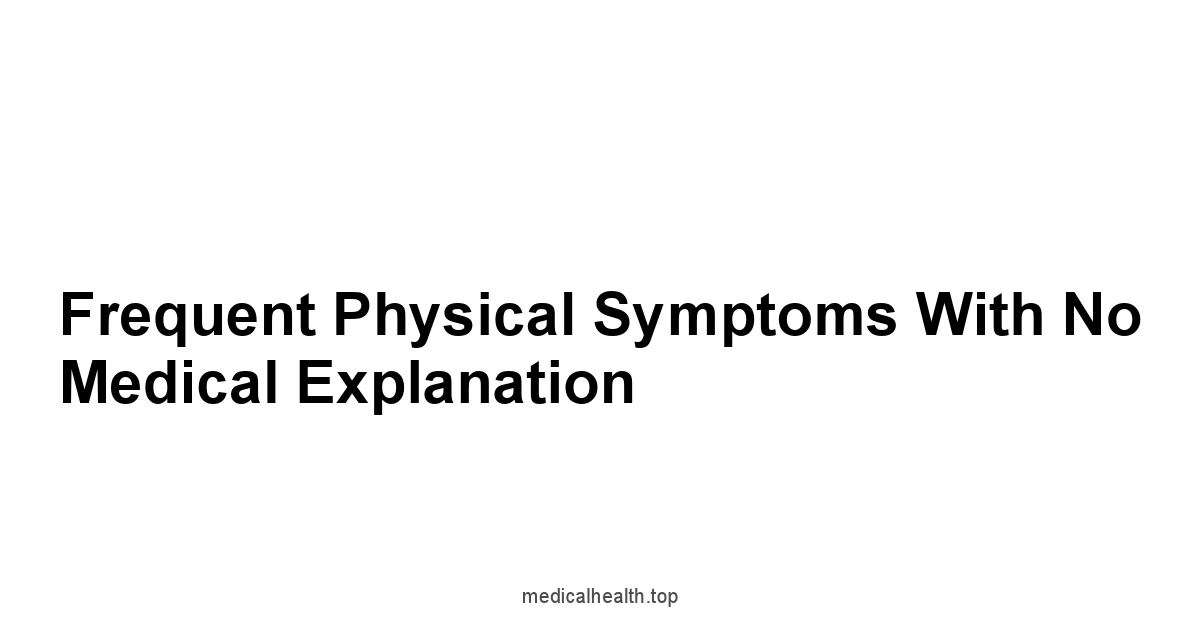
Physical symptoms, they’re the body’s way of talking, a language that sometimes speaks louder than words.
When you start experiencing physical ailments without any clear medical cause, it’s a signal that your mind might be under stress.
These symptoms can manifest in many ways—headaches, stomachaches, muscle tension, or a general feeling of unease.
It is the body’s way of telling you that something is wrong, that something is out of sync, and this message shouldn’t be ignored.
It’s easy to dismiss these symptoms as just being a little under the weather, but when they become persistent and unexplained, it’s time to dig deeper.
It is not always a separate issue, sometimes the physical and mental are intertwined.
These physical manifestations could very well be the body’s response to emotional distress and are worth investigating.
Unexplained Aches and Pains: The Body’s Silent Language
Unexplained aches and pains are like the body shouting for attention.
They’re not just minor discomforts, they’re persistent and seem to have no apparent cause.
You might feel muscle tension, headaches, back pain, or general body aches that linger despite rest or over-the-counter remedies.
It is as if your body is holding onto the tension that is affecting you.
Here are some symptoms that are often experienced:
- Persistent headaches or migraines with no apparent cause.
- Muscle tension or soreness without physical exertion.
- Back pain that doesn’t result from injury or activity.
- General body aches or pains that come and go.
- Joint pain or stiffness without any underlying medical condition.
- A feeling of discomfort or unease in the body.
Digestive Issues and Mental Health: The Gut-Brain Axis
The gut-brain axis is a real phenomenon.
The gut and brain are connected, and what affects one can often affect the other.
When you’re under stress, it can manifest in your digestive system.
You might experience stomachaches, nausea, bloating, or changes in bowel habits without any underlying medical reason.
It is as if the body is rebelling against the mind’s distress.
Here are digestive symptoms associated with mental health challenges:
- Frequent stomachaches or abdominal pain.
- Nausea or vomiting without any apparent illness.
- Bloating or gas.
- Changes in bowel habits, such as constipation or diarrhea.
- Irritable bowel syndrome IBS symptoms.
- A feeling of discomfort or unease in the digestive system.
The Mind-Body Connection: When Stress Manifests Physically
The connection between your mind and body is undeniable.
When you’re under stress or experiencing emotional distress, it can manifest in physical symptoms.
These symptoms aren’t imagined, they’re the body’s way of signaling that you need to address your mental health. Ignoring these symptoms won’t make them go away.
It is crucial to treat the mind and body as one unit, rather than separate entities.
Here’s how the mind-body connection works:
- Stress Hormones: Stress releases hormones like cortisol, which can cause physical symptoms.
- Nervous System: The nervous system plays a key role in how mental stress affects the body.
- Immune System: Chronic stress can weaken your immune system, making you more prone to illness.
- Pain Sensitivity: Stress can make you more sensitive to pain.
- Physical Health Impact: Mental health issues can impact physical health, and vice-versa.
- Holistic Well-being: Treating the mind and body as one unit is necessary for overall wellness.
Increased Reliance on Substances or Unhealthy Coping Mechanisms
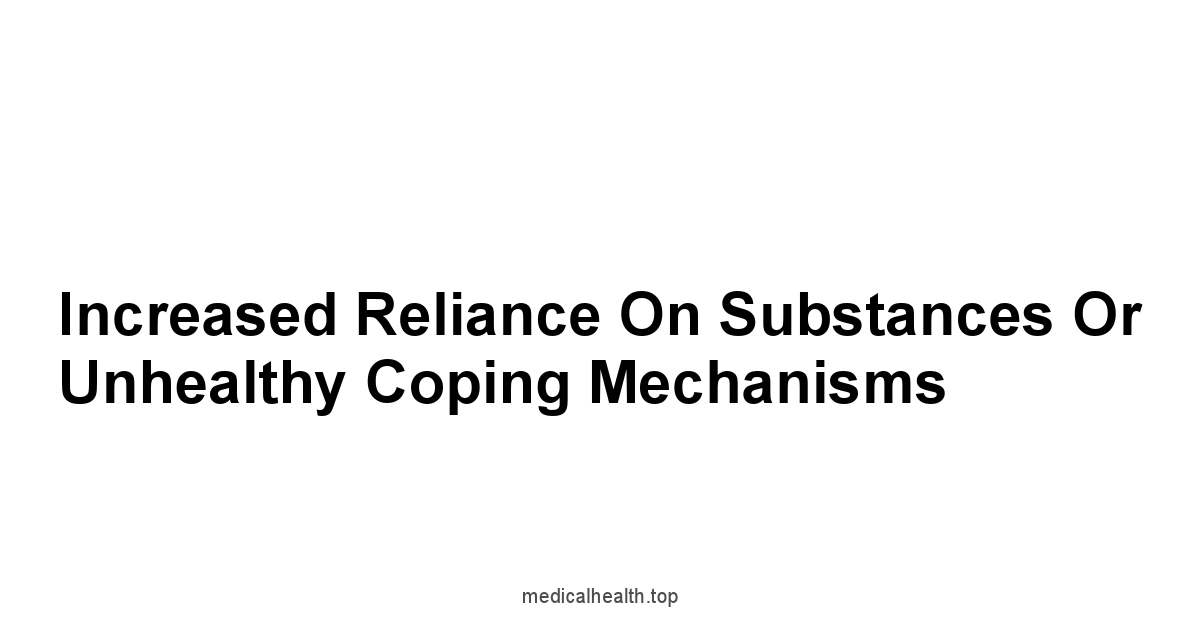
Coping mechanisms, they’re how we handle the challenges of life, our ways of dealing with stress, pain, and discomfort.
When these coping mechanisms turn unhealthy, they become a problem in themselves, a way to escape that can lead to more pain.
It could be turning to alcohol or drugs, overeating, or engaging in other self-destructive behaviors.
It’s as if you’re trying to drown out the pain, but it always resurfaces.
These unhealthy habits can provide temporary relief, but they don’t solve the underlying issues.
In fact, they often create more problems, making it harder to cope in the long run.
When your coping mechanisms start to control you, it’s time to reassess and find healthier ways to handle the challenges that life is throwing at you.
Turning to Alcohol or Drugs: The Cycle of Dependency
Alcohol and drugs, they can seem like a quick fix.
A way to numb the pain or to find a fleeting escape, but it’s a dangerous path, a cycle that leads to dependency.
What starts as an occasional escape can quickly turn into a need.
The more you rely on substances to cope, the harder it becomes to face your problems without them. It is like a quicksand you can’t escape from.
Here are indicators of substance reliance:
- Using alcohol or drugs more frequently or in larger amounts.
- Feeling like you need substances to cope with stress or emotions.
- Experiencing withdrawal symptoms when not using substances.
- Losing control over substance use.
- Neglecting responsibilities or relationships due to substance use.
- Continuing to use substances despite negative consequences.
Unhealthy Habits: Food, Shopping, and Other Escapes
Unhealthy coping mechanisms can manifest in many different ways, not just substance abuse.
It could be overeating, compulsive shopping, excessive gaming, or any behavior that offers a temporary escape from emotional pain.
These behaviors can become addictive, providing a false sense of control and comfort, but ultimately leading to more issues.
It’s a temporary balm that never truly heals the wound.
Here are other examples of unhealthy coping mechanisms:
- Emotional eating or overeating.
- Compulsive shopping or spending.
- Excessive gaming or social media use.
- Engaging in risky or impulsive behavior.
- Isolating oneself from social interactions.
- Procrastinating or avoiding responsibilities.
Recognizing the Need for Healthier Coping Strategies
Recognizing unhealthy coping mechanisms is the first step toward change.
It’s about acknowledging that your current strategies are not serving you well and are causing more damage.
Finding healthy coping mechanisms involves developing new ways to manage stress, emotions, and challenges.
It’s a journey of self-discovery, one that requires both effort and self-compassion.
Here are healthier coping mechanisms:
- Mindfulness and Meditation: Practicing mindfulness or meditation can help manage stress.
- Regular Exercise: Physical activity can improve mood and reduce stress.
- Creative Outlets: Engaging in creative activities like writing, painting, or podcast can be therapeutic.
- Social Support: Talking to friends or family can provide emotional support.
- Healthy Diet: Eating a balanced diet can improve overall well-being.
- Professional Help: Therapy or counseling can provide guidance and support.
Feelings of Hopelessness or Suicidal Thoughts

Hopelessness, it’s like being trapped in a dark room with no exit.
It’s the feeling that things will never get better, that no matter what you do, you will always be stuck in the same place.
It’s a deep sense of despair, a loss of faith in the future, and it is a dangerous feeling to have.
When this feeling becomes persistent, it can lead to thoughts that are very dark.
Suicidal thoughts, they’re not a sign of weakness, they’re a sign of immense pain.
When life seems unbearable, when the pain is so intense that you see no other way out, you might start thinking about ending it all.
It’s the body’s last attempt to escape the seemingly unending torment.
These thoughts are a cry for help and they should be taken very seriously.
The Darkness of Despair: Understanding Hopelessness
Hopelessness isn’t just feeling down, it’s a pervasive belief that things will never improve.
It’s a deep sense of despair, a feeling that there’s no light at the end of the tunnel.
It colors your perception of the world, making everything feel bleak and pointless.
It makes it very hard to carry on, and it is often one of the symptoms that should be addressed immediately.
Here are symptoms of hopelessness:
- Feeling like things will never get better.
- Losing hope in the future.
- Believing that you can’t change your situation.
- Feeling like life is meaningless.
- A sense of deep despair and pessimism.
- Difficulty finding joy or pleasure in anything.
Suicidal Ideation: Recognizing the Warning Signs
Suicidal ideation is more than just feeling sad, it’s about thinking about death or wanting to end your life.
These thoughts can range from fleeting ideas to detailed plans.
It’s important to recognize that these thoughts are a sign of distress, and it is important to seek help immediately.
It is not a personal choice, but a manifestation of the mind crying for help.
Here are warning signs of suicidal thoughts:
- Talking or writing about death or suicide.
- Expressing feelings of hopelessness or worthlessness.
- Making plans for suicide.
- Giving away personal belongings.
- Withdrawing from friends and family.
- Feeling a sudden sense of peace or calm after being depressed.
Seeking Help: The Courage to Reach Out
Seeking help is not a sign of weakness, it’s a sign of courage.
It’s about recognizing that you don’t have to face your struggles alone.
There are people who care, people who want to help, and reaching out is the first step towards healing.
It’s about saying you need help and being willing to receive it.
It’s about choosing life over the darkness and giving yourself the chance to find hope again.
Here are some things you can do to seek help:
- Talk to a trusted friend or family member: Sharing your thoughts and feelings can help you feel less alone.
- Reach out to a mental health professional: Therapists and counselors can provide support, guidance, and effective treatments.
- Contact a suicide prevention hotline: If you’re experiencing suicidal thoughts, these hotlines offer immediate support and resources.
- Go to the emergency room: If you feel like you might harm yourself, seek immediate medical attention.
- Remember you are not alone: There are people who care and want to support you through this.
- It’s okay to ask for help: Seeking help is a sign of strength, not weakness.
Final Verdict
These signs, they’re not just fleeting feelings, they are signals, a call for attention from your mind and body.
They are whispers that can turn into shouts if ignored.
Recognizing these shifts—the persistent sadness, the sleep disruptions, the changes in appetite, the exhaustion, the irritability, the difficulty concentrating, the social withdrawal, unexplained physical symptoms, unhealthy coping mechanisms, and the dark pit of hopelessness—is the first, most crucial step.
Pay attention to the signs, acknowledge them, and know that you are not alone in experiencing them.
It is not a weakness to admit that you need help, it is the first step towards strength.
Like a sailor navigating a storm, you need a compass to guide you.
Seek out professionals, therapists, counselors, these people who are trained to listen and to help you navigate these inner challenges.
Don’t be afraid to talk to a friend or family, those closest to you, they can be a life raft in the storm.
Open up, share, connect, let them know what you are going through.
There’s power in vulnerability, strength in asking for assistance. Your mental wellbeing isn’t a solo endeavor.
Remember, these indicators are not a diagnosis but rather a guide to understand what is going on and when to take action.
According to the National Alliance on Mental Illness NAMI, approximately 1 in 5 U.S. adults experience mental illness each year.
That’s a lot of people, which demonstrates that these challenges are more common than many realize.
The crucial thing is to act, not to wait for the storm to pass on its own.
You must be an active participant in your own health journey.
You have the power to make that change, to seek help and to move forward.
Your mental health is not a luxury, it is the foundation upon which your entire life is built.
Taking care of it is not selfish but rather essential.
It’s about giving yourself the time, energy, and resources to heal, grow, and flourish.
It means making the decisions that prioritize your well-being and building a life where you feel strong and capable.
You are worth it, you deserve it and the world will be a much better place when you are operating at your full potential.
The journey may not always be easy, but with awareness, help, and a commitment to your well-being, you can navigate these challenges and find yourself on a path toward peace and contentment.
Frequently Asked Questions
What if my sadness is just a bad mood?
Sadness visits everyone, like a passing storm.
But if it lingers, if the grey becomes your only color, that’s when you need to pay attention. It’s not just a bad mood if it doesn’t lift.
How do I know if my sleep problems are serious?
Everyone has a bad night.
But if you’re constantly battling to sleep, or sleeping too much, and it’s messing with your day, that’s a sign.
It’s not just being tired, it’s when sleep becomes a fight.
Is it normal to lose my appetite when I’m stressed?
Stress can mess with your eating, sure, but when food loses all appeal, when you’re either skipping meals or overeating, it’s not just stress.
It’s a deeper signal, the body telling you something isn’t right.
Why am I so tired even when I sleep?
Being tired is normal.
Being constantly exhausted, feeling drained despite resting, that’s different.
It’s like your energy has left you, and there is no amount of rest that is bringing it back. It is worth looking into that feeling.
What does it mean if I’m always irritable?
We all snap sometimes, but if you are always on edge, ready to explode, that’s not just a bad day.
It’s a sign your emotional control is off, and something may need looking at.
Why can’t I focus lately?
Concentration should be like a clear window.
If your mind is foggy, it’s hard to focus and your thoughts are slow, it’s not just about being distracted. It’s the mind telling you it needs some help.
Is it bad if I don’t want to hang out with my friends anymore?
We all need time alone, but if you’re constantly pulling away from those who care about you, that’s a signal.
Isolation is a hard road, and it is important to reach out.
Can stress really cause physical pain?
The mind and body are connected.
If you are experiencing constant aches and pains, stomach problems, and the doctor can’t find anything, your stress may be the reason. It is the body speaking to you.
Is it really that bad if I use alcohol to relax?
A drink to unwind is fine, but if you are turning to alcohol every time to escape the issues, it becomes a problem.
It can lead to dependence and more trouble, not a solution.
What do I do if I feel hopeless?
Feeling hopeless, that’s a heavy burden. If you feel trapped in darkness, you’re not alone.
It is time to reach out, talk to someone, there is a way out of the darkness.




